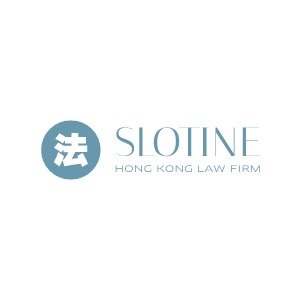Best Debt Capital Markets Lawyers in Wanchai
Share your needs with us, get contacted by law firms.
Free. Takes 2 min.
List of the best lawyers in Wanchai, Hong Kong
About Debt Capital Markets Law in Wanchai, Hong Kong
Debt Capital Markets (DCM) in Wanchai, Hong Kong, form a core part of the region’s vibrant financial landscape. DCM involves the issuance, trading, and regulation of debt securities such as bonds, notes, structured debt products, and convertible instruments. Hong Kong serves as a global financial hub, connecting issuers and investors from Mainland China, the Asia-Pacific region, and beyond. Wanchai, with its proximity to major financial institutions, legal service providers, and regulatory bodies, is a key location for activities involving DCM transactions and legal advice.
Why You May Need a Lawyer
Engaging in the Debt Capital Markets, whether as an issuer, investor, or intermediary, often involves complex legal considerations. Here are common situations where legal guidance may be essential:
- Structuring and executing bond issuances or note offerings
- Ensuring compliance with Hong Kong regulations when raising capital
- Advising on cross-border deals and managing risks associated with international transactions
- Negotiating terms for syndications and underwriting arrangements
- Assisting with listing debt securities on stock exchanges
- Advising on disclosure and due diligence requirements
- Resolving disputes or defaults involving debt instruments
- Strategic planning for debt refinancing and restructuring
A lawyer experienced in DCM can protect your interests, help avoid regulatory breaches, and facilitate smooth transaction processes.
Local Laws Overview
Hong Kong maintains a robust legal framework for Debt Capital Markets, designed to uphold market integrity and investor confidence. Some key aspects include:
- The Securities and Futures Ordinance (SFO) is the primary statute governing the offering, trading, and regulation of securities, including debt instruments.
- The Listing Rules published by the Hong Kong Stock Exchange specify conditions and disclosures for listing debt securities.
- Prospectus requirements entail specific disclosure and documentation when offering debt securities to the public.
- There are regulations on cross-border capital flows, particularly concerning Mainland China connections, under various Stock Connect and Bond Connect programs.
- Anti-money laundering and counter-terrorism financing regulations set standards for market participants and intermediaries.
- Local and international tax laws can impact the structuring of DCM transactions.
Legal counsel is critical for navigating these regulations, ensuring transactions are compliant, and minimizing legal risks.
Frequently Asked Questions
What is considered a debt security in Hong Kong?
A debt security is any financial instrument representing borrowed money that must be repaid, typically with interest, such as bonds, notes, and debentures.
How do I issue a bond in Hong Kong?
You must comply with the Securities and Futures Ordinance, prepare a compliant prospectus or listing document, fulfill any stock exchange listing requirements, and adhere to regulatory disclosure and approval processes.
Can foreign companies issue debt securities in Hong Kong?
Yes, foreign entities can issue debt securities, provided they meet eligibility, disclosure, and regulatory requirements under Hong Kong law.
What is the role of the Securities and Futures Commission (SFC)?
The SFC is the primary regulator for DCM activities, overseeing the licensing, operating, and compliance aspects of issuing and trading debt securities.
What disclosures are required for a debt security offering?
Disclosures typically include financial information, risk factors, terms of the security, use of proceeds, and issuer background, following statutory and exchange requirements.
What are the typical transaction steps for a DCM deal?
Transactions involve structuring, due diligence, documentation, regulatory approvals, marketing, and closing, each with specific legal and regulatory demands.
Are there restrictions on who can invest in Hong Kong debt securities?
Some offerings are limited to professional investors, while public offerings require broader disclosures and may be subject to additional regulations.
How are defaults and restructurings handled?
Defaults are managed through contract terms and may involve negotiation, litigation, or restructuring of terms, often requiring legal expertise for resolution.
What is the difference between public and private placements?
Public placements involve offering debt securities to the general public with full regulatory compliance, while private placements target select investors and may involve lighter regulations.
Why is legal due diligence important in DCM transactions?
Due diligence identifies potential legal risks, ensures accurate disclosures, and helps prevent post-transaction disputes or regulatory penalties.
Additional Resources
Those seeking further guidance may find the following resources helpful:
- Securities and Futures Commission (SFC) - Regulates securities and futures markets in Hong Kong
- Hong Kong Exchanges and Clearing Limited (HKEX) - Issues listing rules and manages the stock exchange, including the debt market
- Hong Kong Monetary Authority (HKMA) - Provides guidance on monetary and banking issues, including Bond Connect
- Hong Kong Bar Association - Directory of barristers and legal experts in financial law
- The Law Society of Hong Kong - Directory of solicitors and legal practices
Next Steps
If you require legal assistance for matters related to Debt Capital Markets in Wanchai, Hong Kong, consider the following steps:
- Document your objectives, existing documentation, and any regulatory communications or requirements.
- Research and shortlist law firms or legal practitioners with established DCM experience in Hong Kong.
- Schedule initial consultations to discuss your needs, ask about relevant experience, and clarify fee structures.
- Prepare questions regarding your transaction’s structure, jurisdictional risks, and compliance strategy.
- Engage a lawyer who can provide tailored, strategic advice and represent your interests effectively from start to finish.
Taking prompt, informed action with the support of a qualified legal professional can clarify your obligations, protect your investments, and support smooth, compliant market activity.
Lawzana helps you find the best lawyers and law firms in Wanchai through a curated and pre-screened list of qualified legal professionals. Our platform offers rankings and detailed profiles of attorneys and law firms, allowing you to compare based on practice areas, including Debt Capital Markets, experience, and client feedback.
Each profile includes a description of the firm's areas of practice, client reviews, team members and partners, year of establishment, spoken languages, office locations, contact information, social media presence, and any published articles or resources. Most firms on our platform speak English and are experienced in both local and international legal matters.
Get a quote from top-rated law firms in Wanchai, Hong Kong — quickly, securely, and without unnecessary hassle.
Disclaimer:
The information provided on this page is for general informational purposes only and does not constitute legal advice. While we strive to ensure the accuracy and relevance of the content, legal information may change over time, and interpretations of the law can vary. You should always consult with a qualified legal professional for advice specific to your situation.
We disclaim all liability for actions taken or not taken based on the content of this page. If you believe any information is incorrect or outdated, please contact us, and we will review and update it where appropriate.

















